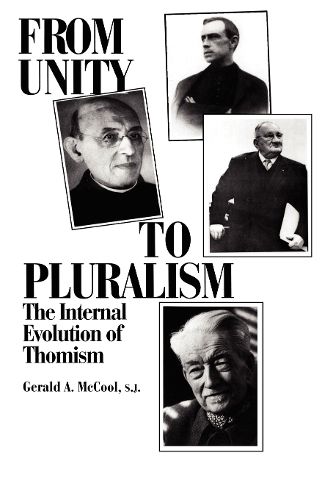Readings Newsletter
Become a Readings Member to make your shopping experience even easier.
Sign in or sign up for free!
You’re not far away from qualifying for FREE standard shipping within Australia
You’ve qualified for FREE standard shipping within Australia
The cart is loading…






This title is printed to order. This book may have been self-published. If so, we cannot guarantee the quality of the content. In the main most books will have gone through the editing process however some may not. We therefore suggest that you be aware of this before ordering this book. If in doubt check either the author or publisher’s details as we are unable to accept any returns unless they are faulty. Please contact us if you have any questions.
Between the Modernist crisis near the beginning of this century and the Second Vatican Council, philosophy and theology in the tradition of St. Thomas Aquinas held an honoured place in Catholic life and thought. This revival of St. Thomas, encouraged by Leo XIII in the 19th century, was continued by such historians, philosophers and theologians of international reputation as Rousselot, Marechal, Maritain, Gilson, Chenu, Przywara and de Lubac. St. Thomas’ influence on historical research, speculative theology, education and social thought seemed to correct the errors of modern social problems. Ironically, however, the very success of the 20th-century Thomist movement helped to undermine it. Professor McCool’s study of the key figures in the 20th-century Thomistic revival shows how philosophy and theology in the tradition of St. Thomas progressively undermined the understanding of Thomism on the basis of which Leo XIII had revived it. Thomism’s philosophical unity had never existed and it could not be achieved in practice. The realization of this truth in the New Theology crisis after World War 11 was the real end of the Neo-Thomist movement. This book aims to be more than a historical account of Thomism’s internal evolution; it is re-reading of the nature of Thomism as a philosophical and theological tradition. In its concluding section the theologies of Rahner and Lonergan, with their openess to history, pluralism and contemporary theological methods, are linked historically and systematically to the Thomism of Rousselot and Marechal. The unity of Thomism, McCool argues, is not the rigid unity of a system or a method but rather the unity of a tradition which, while open to pluralism and evolution, retains a recognizable identity.
$9.00 standard shipping within Australia
FREE standard shipping within Australia for orders over $100.00
Express & International shipping calculated at checkout
This title is printed to order. This book may have been self-published. If so, we cannot guarantee the quality of the content. In the main most books will have gone through the editing process however some may not. We therefore suggest that you be aware of this before ordering this book. If in doubt check either the author or publisher’s details as we are unable to accept any returns unless they are faulty. Please contact us if you have any questions.
Between the Modernist crisis near the beginning of this century and the Second Vatican Council, philosophy and theology in the tradition of St. Thomas Aquinas held an honoured place in Catholic life and thought. This revival of St. Thomas, encouraged by Leo XIII in the 19th century, was continued by such historians, philosophers and theologians of international reputation as Rousselot, Marechal, Maritain, Gilson, Chenu, Przywara and de Lubac. St. Thomas’ influence on historical research, speculative theology, education and social thought seemed to correct the errors of modern social problems. Ironically, however, the very success of the 20th-century Thomist movement helped to undermine it. Professor McCool’s study of the key figures in the 20th-century Thomistic revival shows how philosophy and theology in the tradition of St. Thomas progressively undermined the understanding of Thomism on the basis of which Leo XIII had revived it. Thomism’s philosophical unity had never existed and it could not be achieved in practice. The realization of this truth in the New Theology crisis after World War 11 was the real end of the Neo-Thomist movement. This book aims to be more than a historical account of Thomism’s internal evolution; it is re-reading of the nature of Thomism as a philosophical and theological tradition. In its concluding section the theologies of Rahner and Lonergan, with their openess to history, pluralism and contemporary theological methods, are linked historically and systematically to the Thomism of Rousselot and Marechal. The unity of Thomism, McCool argues, is not the rigid unity of a system or a method but rather the unity of a tradition which, while open to pluralism and evolution, retains a recognizable identity.